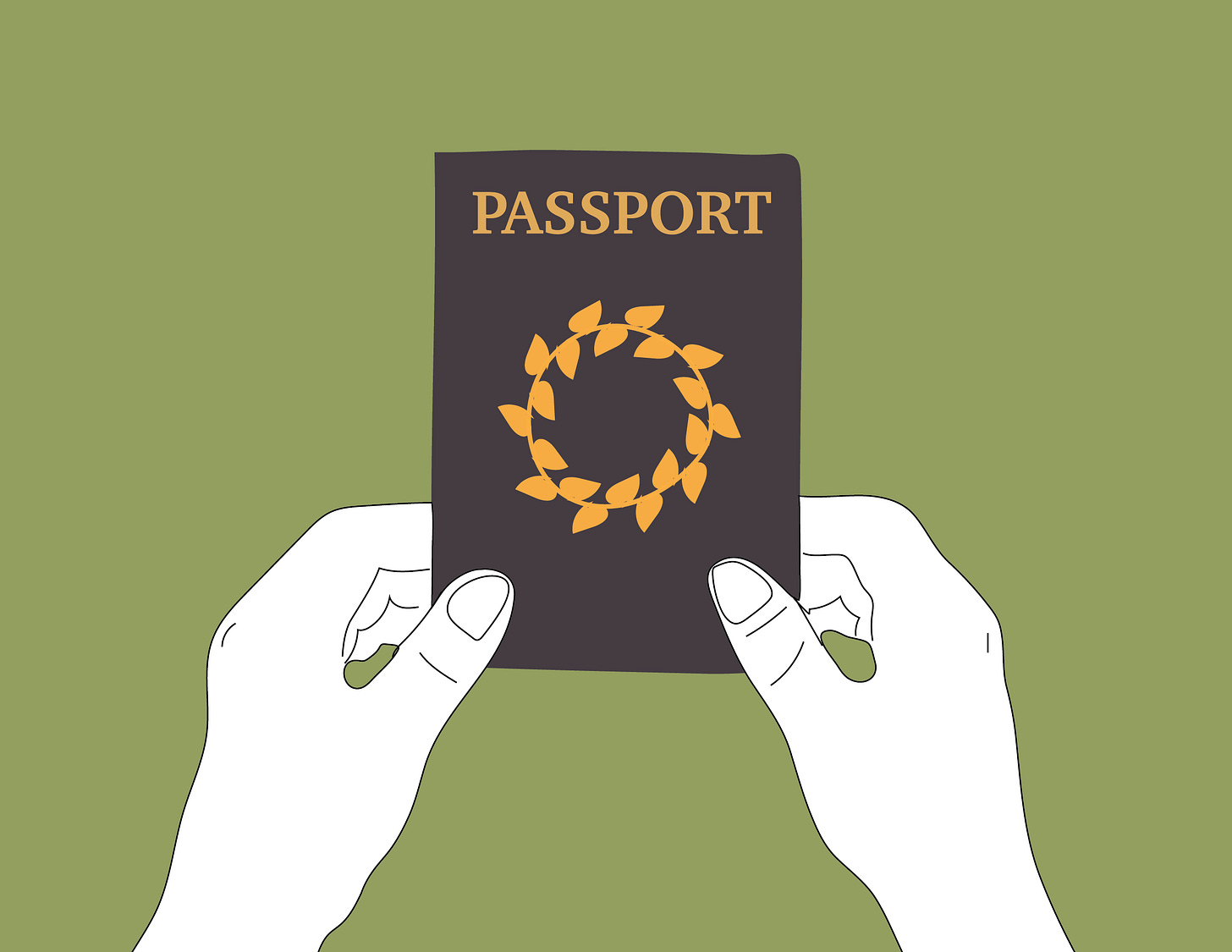Step into a moving brook. Watch your bare feet under the water; feel the pebbles challenging their soft undersides, the cold rush that doesn’t relent. Notice the light—this is important—its dappled grace. Focus on the softness of the water’s touch, not the way, in its hurry, it has no idea what it banishes. Take in its steadfast nature, how it receives your copious weeping yet does not change.
Stand at a blue gate at sunset watching people come and go. Don’t lose faith when they ignore you. Open the gate for the smallest to pass through. Don’t take offense when they scorn your help. Close the gate after the last person leaves. You’ll know they’re the last by the way the latch catches—dull sound that resonates in the cavity of your chest.
Move to other countries where you draw attention in cafes with your accent. When people ask you why you left, talk about opportunity and adventure, passports and family ties. Don’t mention how in your country they’ve been building schools with colored tiles on classroom floors from which a child cannot be seen from the door in case of an active shooter. Marvel at modern architecture. Do not discuss how at night you think about the redundancy of the pairing active shooter. Block out the memory of the day you passed the high school surrounded by cop cars. Tell yourself it was only a matter of an hour or two before you got ahold of your son. Remember how everything was fine, just a hoax. Complain about spelling rules that don’t match up, and always compare the weather.
Beam when the prize-winning writer is from your hometown. Decide, from then on, you’ll stand behind it as your hometown. Consider that from abroad it’s even pretty—treeline hiding its disease, hanging pots of geraniums reflected in empty storefront windows, the geese sleeping it off in the muddy park. Think about adding this location to your bio. Be brave about your sources—a maturity around origin must show promise. Call to mind all those writers who claim specific parts of cities or states, backgrounds resplendent in cardinal directions. Make a note to learn more about where you are on the metaphorical map. You could puzzle it out based on what you know about light, about the sun setting over a blue gate, but you are a patriot, so instead buy a compass.
Love your country on Tuesday but not on Wednesday or Thursday, love it Saturday morning, though fall off to like by afternoon. Love it in theory. Love it in a way that parses people from politics. Employ tough love—let it know you won’t put up with this behavior anymore and stick to your word. Ravage your country with love, think desert spider—species whose offspring consume their mother. Remember that love is the strongest vibration.
Workshop leader, teacher, and writer with roots in spoken word, Kathryn Petruccelli, holds an MA in teaching English language learners. Through her work—much of which involves themes of language and place—she hopes to inspire folks to examine cultural habits and other invisible forces. Her poetry and prose have appeared in venues like About Place Journal, the Massachusetts Review, the Los Angeles Review, River Teeth, and Switch: A Magazine of Micro Fiction, along with others. She recently relocated with her family to the west of Ireland. Find her on Substack
or via her website: poetroar.com.





